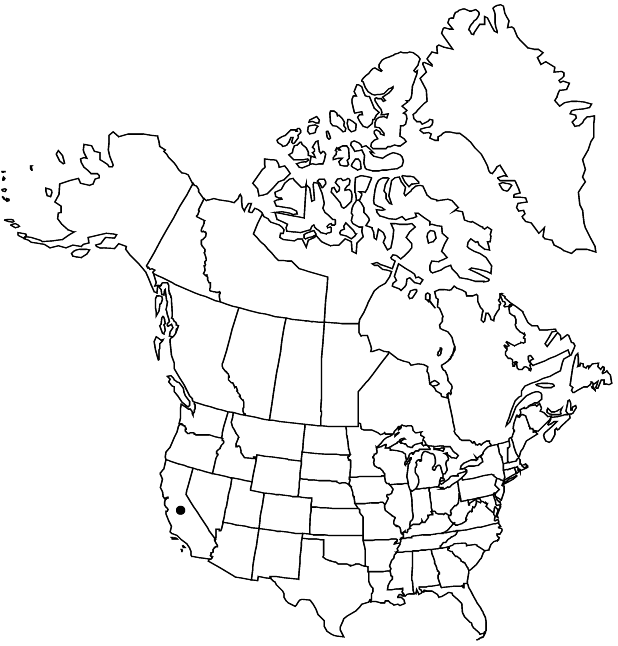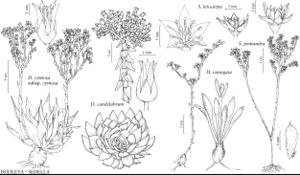Dudleya variegata
Leafl. W. Bot. 7: 110. 1953,.
Corms subglobose to oblong, 1–3 cm × 3–15 mm. Leaves 4–12; petiole 0.5–3 mm wide, to 1/3 as wide as blade; blade blue-green or yellow-green, oblanceolate to spatulate, 1–7 cm × 3–11 mm, 1.5–4 mm thick, base 1–6 mm wide, apex acute to rounded, surfaces not glaucous. Inflorescences: cincinni 2–11-flowered, 2–15 cm; floral shoots 5–20 cm × 0.5–2 mm at base, to 3 mm wide at middle; leaves 10–26, ascending, blade triangular-ovate to lanceolate, 0.5–3 cm × 3–10 mm, 2–5 mm thick, apex acute to obtuse. Flowers mostly odorless; petals connate 0.5–1 mm, spreading from near middle, bright-yellow (fading whitish), often red-lineolate on keel, elliptic, 5–8 × 2–3.5 mm, apex acute, corolla ca. 8–15 mm diam.; pistils separate, suberect; ovary 2.5–5 mm; styles 1.5–2 mm. Follicles widespreading, with adaxial margins nearly horizontal. 2n = 34.
Phenology: Flowering late spring.
Habitat: Hillsides and especially mesas with heavy clay soil, rarely at edge of salt marshes
Elevation: 0-500 m
Distribution

Calif., Mexico (Baja California)
Discussion
Of conservation concern.
Dudleya variegata is endemic to an area some 80 kilometers long, from near San Diego into northwest Baja California, much of it urban; it is considered fairly threatened in California (California Native Plant Society, http://cnps.web.aplus.net/cgi-bin/inv/inventory.cgi). In Baja California, it hybridizes with D. attenuata subsp. attenuata (R. V. Moran 1951).
Selected References
None.
